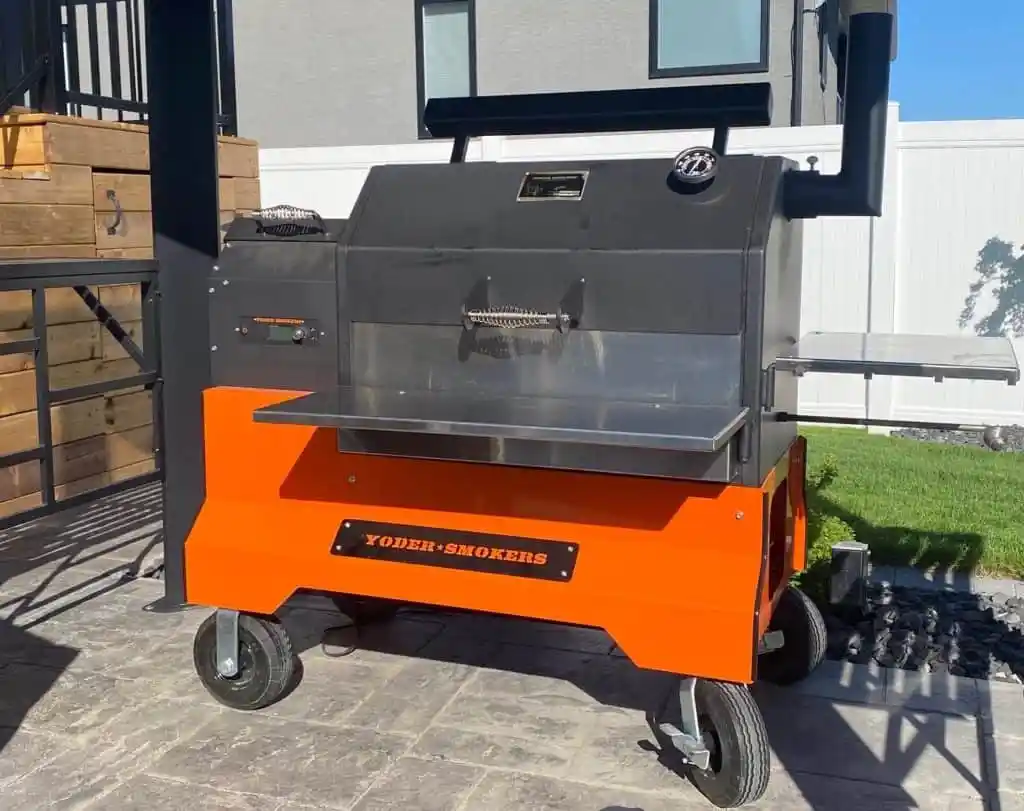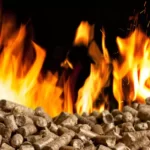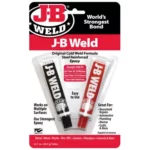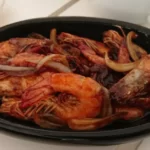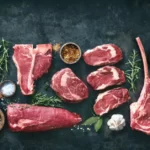Grilling is a form of art, an event cherished by many worldwide. A competition is the pinnacle of this craft where enthusiasts showcase their skills. And the choice of grill plays a pivotal role in the outcome. One particular equipment that has sparked considerable debate over the years is the pellet grill.
Pellet grills are not always the traditional choice for competitions, but they’ve been gaining popularity. This is mainly because pellet grills offer the benefit of both convenience and control, leading to the question, “Are pellet grills allowed in competition?”
The answer varies depending on the competition’s rules and regulations. In some, pellet grills are allowed, while others may strictly adhere to traditional methods. This article aims to provide insights into the topic, addressing the various views on using pellet grills in BBQ competitions.
A Brief Overview of Pellet Grills
Evolution of Pellet Grills
Pellet grills made their debut in the 1980s when an innovative patent was filed by Jerry Whitfield. His idea was simple – to create a grill that used wood pellets as fuel. This invention revolutionized grilling, offering more control over the temperature and more consistent heat.
How Do Pellet Grills Work?
Pellet grills function using a digitally controlled burn system. The pellets are fed into a burn pot, ignited, and fan-forced air spreads the heat and smoke evenly throughout the grill. This mechanism ensures a uniform cooking temperature, making it easier to manage the grilling process.
Significance of Grill Types in Competitions
Overview of Competition BBQ Rules
BBQ competitions are not just about cooking the best meat; they’re about respecting the tradition and the process. The rules are a reflection of this philosophy. For instance, some contests only allow charcoal or wood-burning grills, maintaining a close connection with traditional barbecuing methods. Others may be more liberal, opening the floor to a wider range of grilling techniques and equipment, including pellet grills.
Understanding the rules around the types of grills permitted in a competition is crucial. Competitors who violate these rules may risk disqualification, irrespective of how delicious their BBQ might taste.
Role of Equipment in BBQ Competitions
The type of equipment used in a BBQ competition plays a significant role for several reasons:
- Flavor: Different grills can impart different flavors to the meat. For instance, charcoal grills may lend a smoky flavor, while gas grills might offer a cleaner taste.
- Cooking Time: The heat output from different grills varies, affecting the cooking time and potentially, the texture of the meat.
- Temperature Control: Grills differ in how easily you can control the cooking temperature, which impacts the consistency of the BBQ.
- Skill Level: Some grills may require more skill to operate than others. Judges may consider this when evaluating entries.
The Debate: Pellet Grills in Competition
Why Some Competitions Allow Pellet Grills
Pellet grills are a more recent invention, yet they’ve made a significant impact in the world of BBQ. The ease of use, precise temperature control, and unique flavor profiles they bring to the table have convinced some competition organizers to allow them. The Kansas City Barbeque Society (KCBS) and the American Royal World Series of Barbecue are notable examples.
Arguments Against Pellet Grills in Competition
While pellet grills have many benefits, they also have detractors. Critics argue that the convenience and precision of pellet grills make BBQ less of a challenge, potentially offering an unfair advantage to competitors. This sparks a debate on the core principles of BBQ competitions – should they prioritize traditional skills and methods, or embrace innovation for better results?
Advantages of Using Pellet Grills
Consistency and Ease of Use
Pellet grills are engineered for ease and consistency, two key factors in producing quality BBQ:
- Set-and-Forget Mechanism: Pellet grills automatically feed pellets into the burn pot to maintain the set temperature. This reduces the need for constant monitoring and adjustment.
- Digital Control: With a digital temperature control, you can set your desired temperature with the push of a button. The grill takes care of the rest.
- Consistent Temperature: Pellet grills can hold a steady temperature for hours. This results in evenly cooked meat, essential for competitions.
Flavor Profile: How Pellet Grills Affect Taste
Pellet grills use wood pellets, and the type of wood used can influence the flavor of the BBQ:
- Hickory Pellets: Impart a strong, smoky flavor suitable for robust meats like beef and pork.
- Apple Pellets: Provide a mild, sweet flavor that works well with poultry and pork.
- Mesquite Pellets: Give a bold, earthy taste that’s excellent for most types of meat, particularly beef.
- Cherry Pellets: Lend a sweet and fruity flavor that pairs well with poultry, pork, and beef.
Disadvantages of Using Pellet Grills
Dependence on Electricity
While the digital controls and automatic feeding systems of pellet grills offer convenience, they also need electricity to function. This dependence could pose a challenge in outdoor settings where access to power outlets is limited.
Authenticity Concerns
BBQ purists argue that pellet grills, with their automated features, detract from the skill and art involved in traditional grilling methods. These concerns about authenticity could influence judges’ perceptions in some competitions.
Notable Competitions that Allow Pellet Grills
Kansas City Barbeque Society (KCBS)
KCBS is one of the largest and most prestigious BBQ organizations worldwide. They allow the use of pellet grills in their competitions. However, they specify that the grills cannot use gas or electricity as a heat source, meaning the heat must come solely from the combustion of wood pellets.
American Royal World Series of Barbecue
The American Royal World Series of Barbecue, another major BBQ competition, permits the use of pellet grills. The only requirement is that the grill be ignited by wood or wood products, making pellet grills a viable option.
How to Choose the Right Pellet Grill for Competition
What to Look for in a Competition-Grade Pellet Grill
When selecting a pellet grill for a competition, consider the following features:
- Temperature Range: A wide temperature range gives you the flexibility to cook different types of meat at their ideal temperatures.
- Size and Cooking Surface: A large cooking surface lets you cook more meat simultaneously, essential in a competition setting.
- Construction Quality: Look for a grill with sturdy construction. Stainless steel grills with thick metal parts are often more durable and retain heat better.
- Temperature Control: A good pellet grill should maintain its temperature within a few degrees of the set point.
- Pellet Feeding and Ignition System: The grill should have a reliable system that efficiently feeds the pellets and ignites them.
Tips for Maximizing Performance
To get the most out of your pellet grill in a competition:
- Preheat the Grill: Always preheat the grill before adding your meat. This ensures that the grill is at the right temperature and that the smoke is clean.
- Use High-Quality Pellets: High-quality pellets burn more efficiently and produce less ash.
- Clean the Grill: Regularly clean the burn pot and grill grates to ensure optimal performance.
- Practice: Get to know your grill. Practice maintaining a constant temperature and timing your cook perfectly.
Frequently Asked Questions
Do All Competitions Allow Pellet Grills?
Not all competitions allow pellet grills. It’s crucial to check the rules and regulations of each competition.
Does Using a Pellet Grill Affect the Flavor of the Barbecue?
Yes, pellet grills can infuse the barbecue with unique flavors depending on the type of wood pellets used.
Are Pellet Grills More Expensive to Operate?
Pellet grills can be more costly to operate due to the need for electricity and a constant supply of wood pellets.
Conclusion
The choice of grill is a personal one, dictated by one’s comfort, expertise, and the rules of the competition. Pellet grills, with their ease of use and precise temperature control, can be an attractive option for some, but they may not suit everyone.
The debate on pellet grills in competition is ongoing. While some argue for their convenience and consistency, others favor traditional methods for their authenticity. It’s clear that the acceptance of pellet grills in competition largely depends on the competition itself and the personal preferences of the competitors.
In the end, the key to a successful barbecue lies not just in the equipment but in the skill and passion of the cook. After all, it’s the love for barbecue that brings us together, whether at a backyard cookout or at a grand competition stage.

